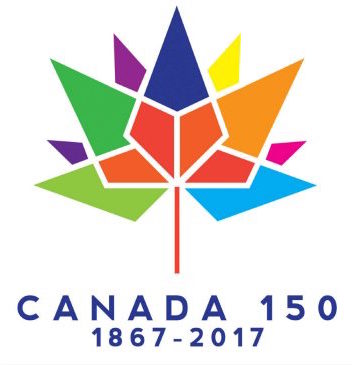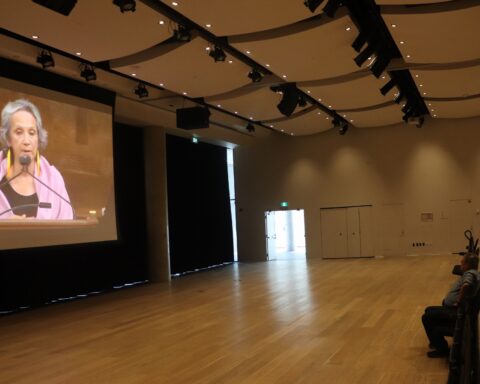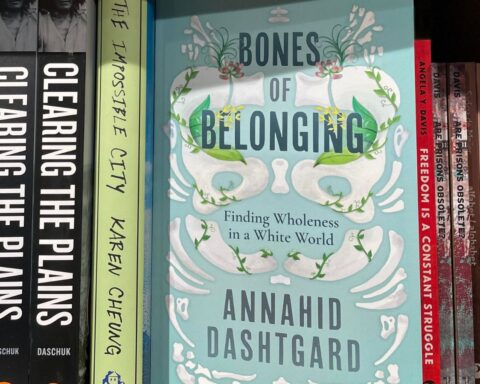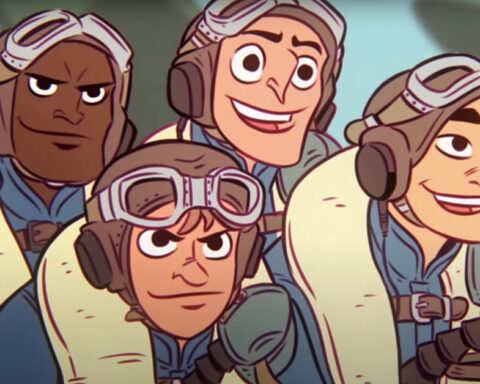 Writers of Japanese descent say their work is helping to fill gaps in Canada’s literary landscape.
Writers of Japanese descent say their work is helping to fill gaps in Canada’s literary landscape.
“When I was at university, the only way I could study a writer of colour was to take the Commonwealth Literature course, and that was a white professor pontificating about South Africa or other places around the world,” says author Terry Watada.
“There was no such thing as Japanese-Canadian or Asian-Canadian/American writing.”
Watada spoke as part of a panel on the Japanese Canadian Experience in Literature with fellow Japanese-Canadian writers Kerri Sakamoto, Leslie Shimotakahara and Lynne Kutsukake in Toronto during Asian Heritage Month.
“When I started in 1970, I was with a group of people who decided that it is a political act to call yourself a Japanese-Canadian writer . . .”
Evolution of Japanese-Canadian literature
Watada recalls how the Japanese community first reacted to the absence of their litrature in Canada by taking a stand and boldly declaring who they are.
“When I started in 1970, I was with a group of people who decided that it is a political act to call yourself a Japanese-Canadian writer, an Asian-Canadian writer, and I think it was modelled on the Asian Americans who also did the same thing,” he says.
Watada is a playwright, poet and novelist who has written about Japanese history – including experiences with immigration, internment, and Japanese and Buddhist traditions.
“I am from the same generation as Terry [Watada],” says Sakamoto. “The way that people think about race is completely different now, but yes, I think it was a real act of reclamation to call yourself a Japanese-Canadian writer because you were mistaken for being a foreigner at that time. There were not as many Asians in Canada, so it was a real declaration of self.”
“But that has changed over the years and I don’t believe anyone starts out by saying, ‘I am a Japanese-Canadian writer,’” Watada adds.
“I felt there was so much to write about that had not been written on the history of internment, and the experience of growing up with racism.”
Reclaiming their history
The panellists say the absence of Japanese voices in literature created a vacuum in the Japanese-Canadian narrative.
“I felt there was so much to write about that had not been written on the history of internment, and the experience of growing up with racism,” Sakamoto explains, referring to the period during the Second World War when Japanese Canadians were removed from their homes and held in camps in British Columbia’s interior and Alberta. The Canadian government ordered their internment following Japan’s attack on Pearl Harbor in 1941.
Sakamoto’s first novel, The Electrical Field, tells the story of her own family members’ experiences with internment and the loss of their homes and businesses at the end of their detainment.
“I felt like I wanted to express that more than just to be a writer,” she says. “I really wrote personally out of a sense of being able to express what I wasn’t seeing in literature or culture at all, at that time.”
Shimotakahara, a fourth-generation Japanese Canadian, was also inspired to begin writing because of the lack of Japanese narrative and literature about the period of Japanese internment in Canada.
“I think it comes from more of a personal struggle to understand that whole period of internment history that seemed to me, growing up, people in the family had very contradictory approaches towards,” Shimotakahara says.
She won the 2012 Canada-Japan Literary Award for The Reading List: Literature, Love and Back Again, a memoir about how she used literature to gain a sense of direction in her life, and at the same time developed a bond with her father and deeper understanding of his past.
“So many things are universal, but some things are very unique to your own personal identity, and reading Japanese-Canadian literature allowed me to find a voice.”
Inspiring each other
Reading was also a gateway to the past for author Lynne Kutsukake, who says she was impacted by the few Asian authors she found in North American literature.
“Long before I dared to start writing, I was a reader,” she says. “I remember in the 1970s [and] 1980s, how startling it was when I read for the first time Asian-American, Japanese-American, or Asian-Canadian writing.”
She says that before then, the only way to study literature in Canada was to read mostly white Canadian authors.
“I remember that the first Asian-American novel I ever read was by Maxine Hong Kingston,” she says, referring to the Chinese-American author and activist. “I was just blown away.”
Both Sakamoto and Kutsukake say they were influenced by the writing of Japanese-Canadian author Joy Kogawa, whose novel Obasan tells the story of a Japanese-Canadian family who was persecuted during internment, from the perspective of a young child.
“Most readers read looking for something they can identify with,” says Kutsukake. “So many things are universal, but some things are very unique to your own personal identity, and reading Japanese-Canadian literature allowed me to find a voice.”
Like Sakamoto and Kogawa, Kutsukake also writes about Japanese Canadian internment in her novel The Translation of Love. It tells the story of a family living in post-WWII Japan, after being exiled from Canada during the internment period.




